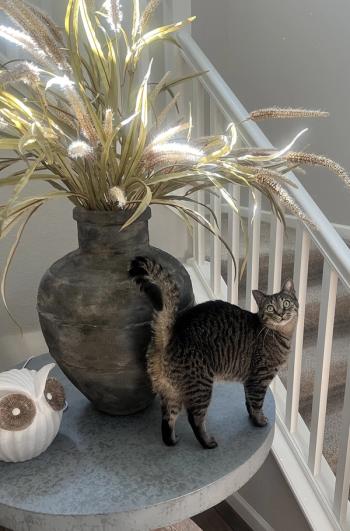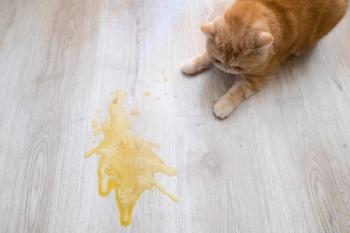
Top 10 questions routinely left out of avian histories
Las Vegas — A good patient history offers clues to physical exam findings, behavioral disorders or potential environmental hazards that threaten birds.
Las Vegas — A good patient history offers clues to physical exam findings, behavioral disorders or potential environmental hazards that threaten birds.
But avian veterinarians often fail to gather pertinent information that can be garnered by asking a few simple questions, says Dr. Gregory Rich, of West Esplanade Veterinary Clinic in Mertairie, La.
"History has always been the hallmark of a good clinician," Rich says during a seminar at the Western Veterinary Conference. "In avian medicine, there are many questions that are essential for full understanding of the nutritional, environmental, behavioral, infectious, toxic parameters that are present in the birds at home environment that will only become evident if the practitioner asks the right questions."
Rich adds that owners should be presented the following 10 questions via written questionnaire before a physical exam begins:
- 1. What does your bird eat, and where do you buy the food?
- 2. What percentage of that food is consumed?
- 3. How often are the food and water dishes cleaned, and what is used to clean them?
- 4. What type of substrate is on the bottom of the cage?
- 5. Is the bird allowed out of the cage?
- 6. How long have you owned the bird?
- 7. Where did the bird come from? Be specific (breeder/pet store/bird fair)?
- 8. Do you have other pets at home?
- 9. Has the bird ever been sick before?
- 10. Have there been any sick or dead birds in the house in the last year?
These basic questions give practitioners facts pertinent to beginning an avian health exam, but often, they must be expounded upon, Rich says. For example, if a client lists "parrot food" as an answer for the first question, the information does not give any indication of quality or freshness. Asking the second question cuts to the meat of what the bird consumes, considering many owners feed their animals a variety of foods, he adds.
Questions on the cleanliness of food and water dishes often reveals misconceptions on the part of owners who think weekly washings are sufficient or soap is harmful to the bird. "This answer will help the practitioner understand gram-stain findings on choana, crop and feces/cloacal bacterial studies," Rich says. "This is the perfect time to talk to the owner about how to clean the cage and bowls properly."
Reading between the lines is a "fine art"; the answers undoubtedly will lead to further questions, he adds.
"I am always amazed at the number of sweet middle-aged ladies who have reptiles in their houses in New Orleans," Rich says, adding that if clients say their pets include other birds, ask what types. "You will also be surprised at the number of 'house chickens' being kept in your city — a potential source of Salmonella," he says.
Newsletter
From exam room tips to practice management insights, get trusted veterinary news delivered straight to your inbox—subscribe to dvm360.




